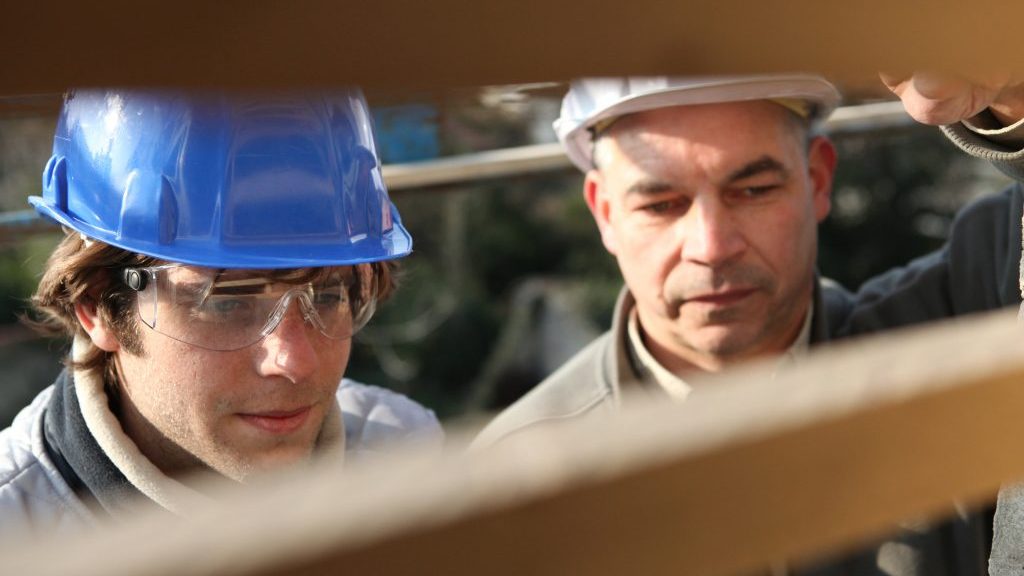Today, the Daily Commercial News reports on provisions contained in Ontario government legislation to repeal the Ontario College of Trades. Part 2 analysis will study changes to apprenticeship ratios and other business and labour reforms.
Reaction among construction stakeholders to the scrapping of the Ontario College of Trades (OCOT) has been varied, but they all agree on one thing — OCOT never achieved its potential.
The College, founded by the former Liberal government to promote and regulate Ontario’s trades, launched in April 2013 and was beset by problems right from the beginning — especially within the construction sector.
OCOT was accused of having a bias towards compulsory trades, of being preoccupied with its regulatory role and of ineffectiveness in resolving scopes of practice disputes.
Premier Doug Ford’s Progressive Conservative government pulled the plug on the College on Oct. 23 in a move that caught many construction advocates off guard.
The announcement of the new Making Ontario Open for Business Act was made at a media conference by the province’s Minister Responsible for Red Tape and Regulatory Burden Reduction Jim Wilson, Minister of Labour Laurie Scott and Minister of Training, Colleges and Universities (MTCU) Merrilee Fullerton.
Besides “winding down” OCOT, the legislation contains provisions to change Ontario’s apprenticeship system, roll back planned increases to the minimum wage and undo worker benefits and improvements to working conditions contained in the Liberals’ Bill 148.
The ministers made limited reference to OCOT in their addresses and the statement announcing the new legislation said, “The legislation, if passed, will also modernize the apprenticeship system by initiating an orderly wind-down of the Ontario College of Trades, which remains a source of unnecessary and burdensome complexity for skilled trades employment in the province.”
The College will be terminated by the end of 2019, the government announced.
From a trade person’s perspective, I thought the College was a great concept
— Patrick Dillon
Provincial Building & Construction Trades Council of Ontario
“The announcement about the College caught me totally by surprise,” said Ian Cunningham, president of the Council of Ontario Construction Associations.
“I thought the College might have been stripped of responsibilities with respect to ratios and status of trade and enforcement and that it would focus on working with employers and apprentices and journeymen and construction associations and unions on apprenticeship modernization. Now this will have to continue, but I just don’t know where it will continue.”
Commented John Grimshaw, an executive with the International Brotherhood of Electrical Workers, “It certainly doesn’t surprise me. It definitely comes from a Conservative playbook.”
The legacy of OCOT, said Grimshaw as well as spokespeople for such other stakeholders as the Ontario General Contractors Association (OGCA), Merit Ontario, the Progressive Contractors Association of Canada (PCA), the Residential Construction Council of Ontario, the Ontario Skilled Trades Alliance (OSTA) and the Provincial Building and Construction Trades Council of Ontario, will be one of flawed execution.
“I think the initial idea, certainly there was some merit there talking about trades promotion and how to address the skills gap,” said Patrick McManus, chair of OSTA.
“But I think the focus was on regulatory enforcement. It created big, big problems. For years there was a fine balance in who can do what on a construction site. Those rules were set and evolved through the Labour Relations Board.
“And then when the College came in with its own scope of practices regulations and its enforcement body, who could do what on a construction site was muddied. There were jurisdictional disputes, there was a lot of tickets and enforcement around who was allowed to do what on construction sites. That created a lot of problems and a lot of bad blood between the College and the employer associations.”
Building Trades business manager Patrick Dillon suggested OCOT as it evolved was imperfect but not to where issues could not be worked out.
“From a trade person’s perspective, I thought the College was a great concept,” he said. “Yes, it had some kinks to be worked out, but were those issues that serious that the whole College should be blown up?”
Grimshaw, a board member of the Building Trades, said OCOT failed to promote the trades among young people and to protect consumers. It had too many bureaucrats in key functions and it failed even in its regulatory efforts, in particular to enforce jurisdiction among trades.
The reality is, this organization has presided over a decline in apprenticeships since it began
— Sean Reid
Progressive Contractors Association of Canada
“They failed miserably on all of that,” he said. “They have not attracted more people to the trades, it turned out to be another bureaucracy where it was a place to shuffle off a bunch of MTCU bureaucrats.”
IBEW complaints about OCOT enforcement continued into this year, even after a long process of reform undertaken by the previous government had introduced changes recommended in the Tony Dean report.
PCA vice-president and Ontario regional director Sean Reid noted his organization has been against OCOT from the beginning.
“The reality is, this organization has presided over a decline in apprenticeships since it began,” he said. “So they have really not delivered on the very thing they were supposed to do.”
Merit Ontario executive director Michael Gallardo similarly identified OCOT’s policy of restrictive apprenticeship ratios in applauding the Ford government’s decision to abolish the College.
OGCA president Clive Thurston said his organization, as OCOT got established, became more involved in advocating for reforms.
“As time moved on and it was realized that there has to be an organization or somebody to pull together the necessities of improving the system, we felt the College could be reformed back to some of the original ideas,“ he said.
But the reforms would never work, fellow OGCA executive David Frame stated, because of a basic flaw.
“In the big picture, the College was an impossible idea,” said Frame.
“What they said they wanted to do was, they wanted to promote the trades, while they wanted to get the industry through the College to regulate the trades. And in practice, those become a conflict.”
In the end OCOT was the victim of power grabs by strong unions who wanted to control how decisions got made, how enforcement was undertaken and what unions got certified as compulsory, claimed Thurston.
Still, Cunningham argued, new CEO and registrar George Gritziotis had made great progress in reorienting the College since his appointment last year. The reforms on compliance and trades promotion should have been given more time to take effect, said Cunningham.
“I think it has become a very new organization over the past year,” he said. “I don’t think the government took that into account.”
The stakeholders suggested they would be willing to participate in consultations in future as the government sets up structures to replace OCOT — though Dillon, noting the lack of notice of the recent reforms, said, “that is, if we are asked to participate.”











As a tradesman, I found they did nothing for us except take money. Look on their website. It is useless to us. The “enforcers” enter our workplace like they owned it and acted like a police force and they couldn’t even define their own role when asked each time. Look to Alberta’s Tradesecrets website as a model. The tradesmen pay no dues and the apprenticeships still have provincial and inter-provincial certificates which is the way it should always be. You should only need 60% for a provincial ticket not just 75%. It is ridiculous to make people failures when other vocations accept a 50% pass mark.
No thanks Pat Dillon your input is not welcome. You’ve done enough already.
The College of Trades never got enough time to iron matters out, it takes more than five years to have a skilled trades workers competent, why would one expect a new organization to be perfect in five years? The past minister Kevin Flynn did not take care of matters properly and was the weak section of iron supporting the College. There is a trades shortage, and there is no excuse to start letting unlicensed C of Q workers do the vital and dangerous skilled work in Ontario.
OCOT held us at ransom and forced us to pay to be allowed to work. It was a government operation sold off to the highest bidder by the Liberal government. They never gave scope of trade for many. They ruled from the most expensive rental real estate in Ontario – Bay Street of all places. They increased our fees from $20 a year to $120 plus tax per year.
The inspectors were plumbers inspecting automotive shops, or HVAC techs inspecting welders. It was a complete joke at the expense of tradespeople
OCOT was and still is an organization that went and ruined livelihoods. They went into businesses that were established long before regulations took over and forced them out because of lack of paying their “dues” If you were not a member you could not function.
My own brother has been a mechanic and bodyman for over 40 years. Had his own shop with loyal customers for 30 of those years. They came in and because he didn’t have a college or university ticket, or wasn’t a member of OCOT and shut him down. Yes, he has licensed technicians employed, and was a registered business in good standing, but that didn’t matter. Not only did they force him out and fine him huge, the enforcer on the case took it personally and stalked him for 18 months. Followed him around literally and when he would pull into a shop the enforcer would follow in to ensure he wasn’t working on any vehicles. That was crazy. Way beyond the intended scope for the OCOT but with no regulations they had free will to do as they pleased.
Karma finally stepped in and got the enforcer in the end: He was following my brother and I one day and he had a woman fellow enforcer with him . We pulled into a fenced-in compound and shut the gate. We noticed they got out of their OCOT JEEP Cherokee and were writing down the licence plates of all the vehicles in the compound. When asked what in hell they were doing, we were told they were going to contact the registered owners and asked who was working on their cars. We told them they can’t do that it, it was an invasion of privacy. Well as it happened, one of the vehicles was a police officers personal car. Turns out the female enforcer was previously an OPP cop and she used her connections to have a friend run all the plates and provide her with all the owners info. She was caught for doing this because when they called the owner of a vehicle (cop) he wanted to know how she got the info, an investigation ensued and the pair of them were fired, with her getting criminally charged as well as the cop who helped her.
Sorry for the long comment but this just shows how far and wide the damage was done by OCOT when they had no real mandate!
As a tradesman and a manager I had to deal with OCOT , the first time i had a hairdresser telling me excavation and concrete are an electricians job and her supervisor telling me 44,000 volt overhead lines are an electricians job as well . Consulting the laboir board on past practices would have made there lives easier instead of threatening hard working people with enforcement fines that amounted to nothing and ultimately there demise.
OCOT is the biggest JOKE in trade history, no one sees them anywhere in the construction industry, they are just money collectors by threatening the tradesman !!